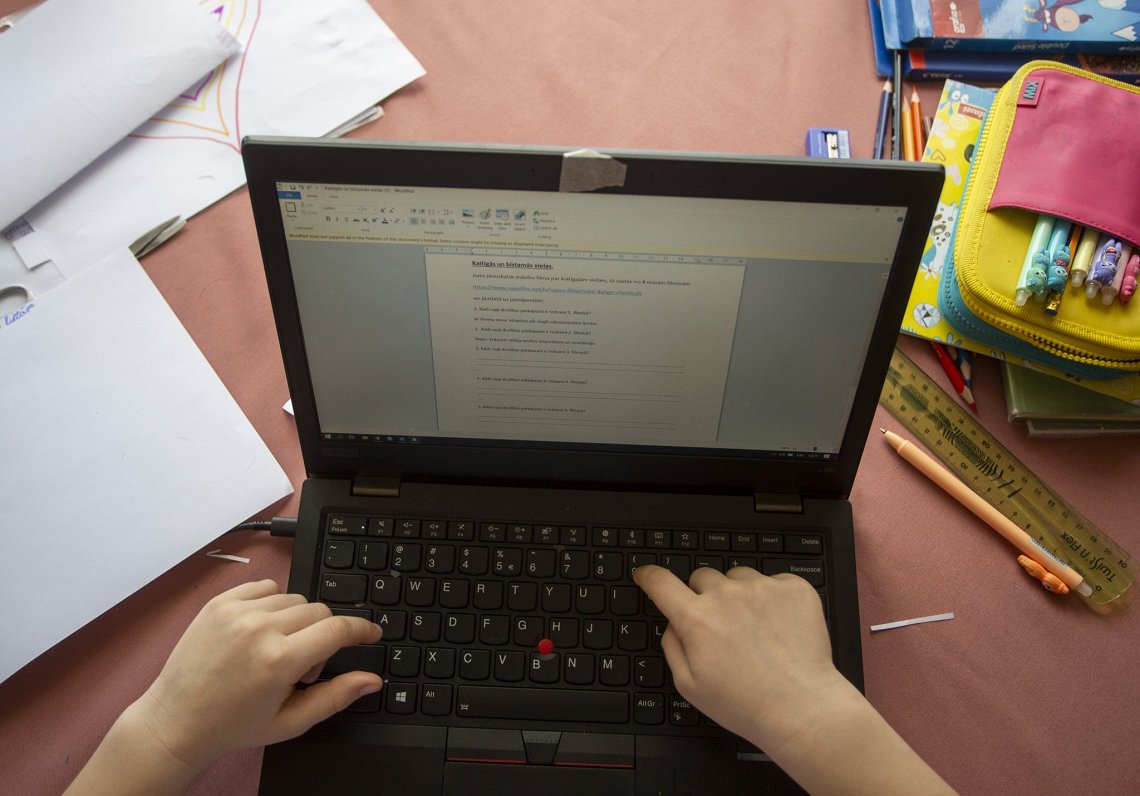Gunita Leite is a mother of a third-grader. After spring experience, Gunita hopes that the decision on remote learning will not be taken.
“I then work from home. And all of this was very hard together. It took a lot of resources, energy. I could not do my job properly during the day,” said Leite.
Artis Babris, whose daughter is in grade 2, thinks that this should not be implemented at national level.
“The spring situation showed that “if you're not a teacher, I can disobey you. You don't know better than I do!” And the mental health of the family suffers. And the parent who is with the child cannot devote time to work,” Babris said.
Parents' work is also one of the main reasons why small pupils are still kept at school. Some parents have opportunities to do jobs from home, but some can't. In addition, organizing remote work often means higher costs for entrepreneurs.
“We have already made a proposal on several occasions in both the government and the Saeima to avoid double taxation of employers' costs related to remote work. It's not representation, but basic needs. This would be a way of supporting both the employer and the specific employee,” said Liga Menģelsone, Director-General of the Latvian Employers' Confederation.
She believes that students of classes 5 and 6 could be learning remotely, but the primary school should remain on site. In turn, the Latvian Union of Local Governments calls for an assessment of the situation in municipalities. In places where the virus rate is low or no cases have been identified, allow pupils to learn on-site.
“They do not have the skills to learn remotely, they need parental involvement. Parents don't even leave children alone at this age. We call for the right of municipalities to take these decisions together with educational institutions,” said Ināra Dundure, the union advisor for education.
According to the municipal survey, up to 20% of pupils still do not have access to technology for the quality organization of the learning process.





























